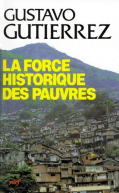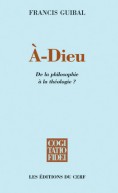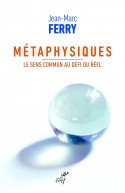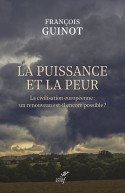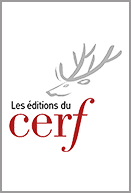
Gloire en exil (La)
Collection Théologies
160 pages - avril 2004
22,00€
Emmanuel Levinas n'a jamais fait mystère de ses origines juives ni du fait qu'il y avait là pour lui des ressources qui lui apparaissaient inépuisables de signification. Attelé à un travail d'écriture proprement philosophique, il ne renie aucun horizon, n'écarte aucune source de pensée : les « écritures », reconnues comme saintes dans sa tradition religieuse d'origine, dialoguent en lui avec le Logos venu de la sagesse des Grecs. Source de fécondité que ce dialogue ininterrompu : la tradition philosophique occidentale garde aux yeux de Levinas son « droit au dernier mot » et « tout doit être exprimé dans sa langue ». La raison se doit de reconnaître pourtant qu'à l'intérieur de cet espace « la première parole n'est jamais de nous, ce qui nous interdit de prétendre à aucun dernier mot ». Ainsi ce philosophe singulier honore-t-il l'exigence de se mouvoir et de demeurer dans l'espace d'intelligibilité commune qui nous a été ouvert par les Grecs mais « en introduisant dans cette mesure de la raison commune la venue et l'excès, l'au-delà et l'autrement, d'un Infini qui la provoque et la relance ». L'enjeu est bien de philosophie et même de radicalité philosophique : comment porter cette raison au plus haut de sa vigilance interrogative, comment l'éveiller ou la réveiller pour l'ouvrir ou la laisser s'ouvrir à ce qui l'appelle sans qu'elle puisse le maîtriser ? Francis Guibal écrit pour partager sa conviction « qu'il n'est guère possible de philosopher aujourd'hui sans avoir au moins entendu, écouté et médité, ce qu'a avancé Levinas, sans avoir été "touché" par le timbre et la résonance de cette voix et de cette écriture ». Son essai emporte l'adhésion, invite à la rencontre et, par sa limpidité, en facilite grandement le déroulement.
--
Emmanuel Levinas never made a secret of his Jewish origins or of the fact that, for him, they represented an infinitely rich source of signification. Anchored to the task of truly philosophical writing, he refuted no perspective nor distanced any source of thought: the writings recognised as holy in the tradition of his religious origins kept an inner dialogue with the Logos from Greek wisdom. That constant dialogue was a source of fecundity: in Levinas’s eyes, the Western philosophical tradition retained its ‘right to speak the last word’; ‘everything must be expressed in its language’. Yet reason demands we recognise that within that space ‘The first word did not come from us, which means we cannot claim the last one’. Thus this unique philosopher respects the exigency to act and remain within the common space of intelligibility that was laid open for us by the Greeks, though ‘introducing to this measure of common reason the beyond and otherness, coming and excess, of an Infinity that provokes and re-launches it’. The challenge is indeed a philosophical one, even radically philosophical: how can we maintain reason at its highest point of questioning vigilance, how can we awaken or reawaken it to the thing that is calling out, without it taking control? Francis Guibal writes here in order to share his conviction ‘that it is hardly possible to think philosophically today without having at least heard, listened to and considered what Levinas proposed, without having been “touched” by the timbre and the sound of his voice, and his writing’. His essay succeeds in convincing and inviting us to discover, and, thanks to its clarity, greatly facilitates discovery.
--
Emmanuel Levinas never made a secret of his Jewish origins or of the fact that, for him, they represented an infinitely rich source of signification. Anchored to the task of truly philosophical writing, he refuted no perspective nor distanced any source of thought: the writings recognised as holy in the tradition of his religious origins kept an inner dialogue with the Logos from Greek wisdom. That constant dialogue was a source of fecundity: in Levinas’s eyes, the Western philosophical tradition retained its ‘right to speak the last word’; ‘everything must be expressed in its language’. Yet reason demands we recognise that within that space ‘The first word did not come from us, which means we cannot claim the last one’. Thus this unique philosopher respects the exigency to act and remain within the common space of intelligibility that was laid open for us by the Greeks, though ‘introducing to this measure of common reason the beyond and otherness, coming and excess, of an Infinity that provokes and re-launches it’. The challenge is indeed a philosophical one, even radically philosophical: how can we maintain reason at its highest point of questioning vigilance, how can we awaken or reawaken it to the thing that is calling out, without it taking control? Francis Guibal writes here in order to share his conviction ‘that it is hardly possible to think philosophically today without having at least heard, listened to and considered what Levinas proposed, without having been “touched” by the timbre and the sound of his voice, and his writing’. His essay succeeds in convincing and inviting us to discover, and, thanks to its clarity, greatly facilitates discovery.
- Dimensions : 135x215x10
- ISBN : 9782204073769
- Poids : 225 grammes
DU MÊME AUTEUR
> VOIR TOUS LES LIVRES DE l'AUTEUR

